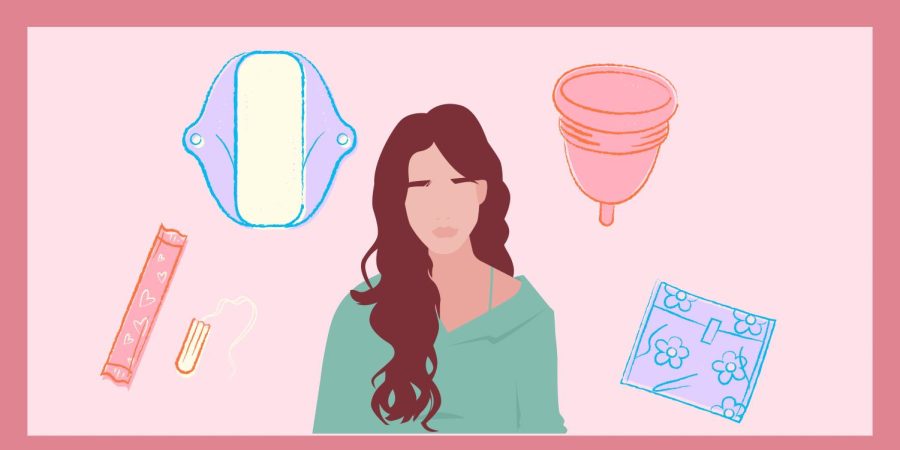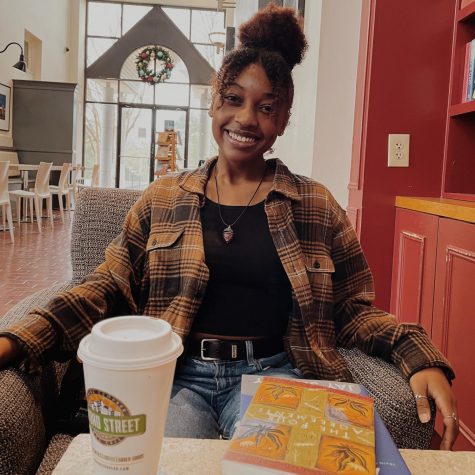As I lay in bed scrolling aimlessly through Facebook, I came across a post about a newly released Disney movie: “Turning Red.”
I enjoy reading comments from people on social media because the opinions on there range from “hmm, I never really thought about it like that” to “do we really coexist with people who think like that?” So, when I landed on a comment that read, “this movie is too inappropriate for my child,” I had to figure out why.
When I first glanced over the trailer of this movie, it took me a moment to realize that “turning red” was a metaphor for puberty. If it took me some time to understand that, then how is a 5-year-old supposed to pick up on it? These overprotective moms commenting on Facebook had me stunned. Evidently, Disney found it appropriate to be released as a kid’s movie because Disney doesn’t think talking about periods should be taboo.
In the movie, Mei Lee asks her mom why she didn’t warn her about “turning red.” Her mom told her that she did not think it would happen to her yet and that she was “watching her so closely to pick up on the signs when it would.” Well, Mei Lee’s mom had the same mindset as my own mom. My “turning red” moment was when I was 11 years old. I woke up to get ready for school one day and my parents woke up to me screaming, “ahhh mom, my organs are falling out of me!” followed by an hour worth of heavy tears, confusion and three days of staying home from school.
Now mind you, the year before in fifth grade, the school had a day where a nurse gave a tutorial to girls and boys about puberty. My parents did not allow me to go to school that day. They thought they were “protecting my innocence.” Granted, my South Asian parents had the best intentions when raising me, but if I had gone to school that day, I would not have thought that I was dying at 11 years old.
My parents were awakened from this experience, so when my little sister’s second grade class had their health lessons, my parents did not take her out of it. Ironically enough, her “turning red” moment happened when she was 9 years old, which shocked my mom because of how young she was. A girl can get her period as early as 8 years old . As grown women, we know the mental and physical toll menstruation can take. Imagine trying to understand that, at that early age.
However, some of us still do not understand that as adults. There are women who still feel embarrassed to talk about periods or feel that they should not talk about it at all. A year or so ago, I watched a documentary on Netflix called “Period. End of Sentence” where the beginning scene started by showing a girl who was so hesitant to say the word “period” that you would think someone was holding her hostage. Watching that documentary strained my mind as to why the topic was so taboo. The lack of menstrual products in India is due to the lack of knowledge in understanding the truth of the female body. This is not only true in India, but here in the United States as well. According to a study done by Diva International Inc., 55 percent of American women were unprepared for the first time their period showed up, 43 percent were scared from the experience, while others felt “sheer embarrassment” by it.
Why should we continue letting girls go through it like this? Why is it so awkward to talk about? Because there is juice flowing out of the forbidden fruit? Because it is hard to fathom that one can bleed so much and not die?
All puns aside, it is important to be educated. Not just for young girls, but boys too, so they can be raised to be gentlemen and not poke fun at something they were never taught by their parents.
The idea of shielding kids from learning about their biology baffles me. I can assure that periods would be a less distressing experience for many if society normalized talking about it. I think Disney knocked it out of the park with “Turning Red.” This movie not only introduces adolescence, but it also teaches that having a period is normal, and it is normal to grow up. It is a part of life.
There is no need to turn red about “turning red.”
Sumaia Wegner is a junior studying journalism and communication.








